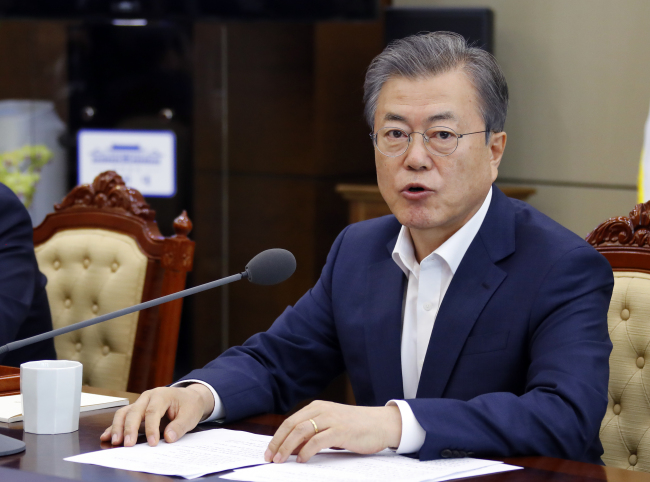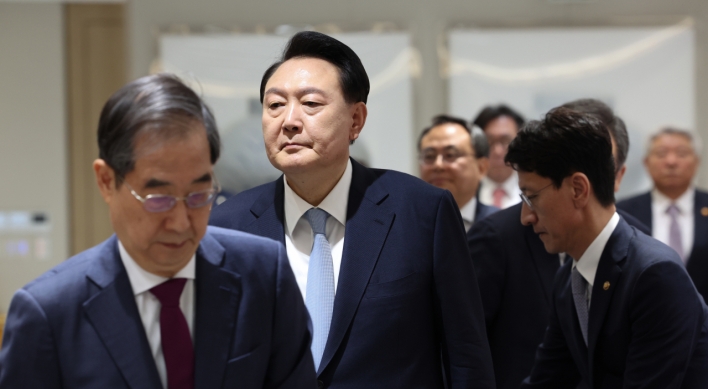Government to focus on aiding bio, non-memory chip, automotive industries
By Choi He-sukPublished : April 22, 2019 - 16:35
The Korean government will focus resources into boosting non-memory semiconductors, bio industry and next-generation automotive technology.
According to reports, the presidential office has selected the three industries to lead the country’s economic growth into the future and will tailor policies to facilitate their growth.
According to reports, the presidential office has selected the three industries to lead the country’s economic growth into the future and will tailor policies to facilitate their growth.

The decision was reportedly based on the Moon Jae-in administration’s goal to aid the development of industries in which local firms become global leaders.
The three industries were selected based on the current competitiveness of local firms and their potential to become world leaders, as well as the country’s ability to meet financial and human resource requirements. The government reviewed the selected industries’ job creation effect and whether the fields have the potential to facilitate the growth of both large companies and small and middle-sized enterprises.
The government’s decision to include non-memory semiconductors among the three industries is aimed at offsetting difficulties that semiconductor makers are experiencing due to falling prices and exports.
According to industry data, South Korean companies hold over 50 percent of the global market for memory semiconductors. However, the figure for the non-memory semiconductor market remains under 5 percent.
The government is also said to be planning to concentrate its measures on expanding local firms’ share of the semiconductor foundry market, as well as the system semiconductor market.
In step with the governmental plans, the country’s largest chipmaker Samsung Electronics is reported to be planning significant investment in non-memory semiconductors.
As for the bio industry, the government considers the field to have large growth potential due to rapid advancements in biotechnology and increasing demand for related services and products created by an aging population.
In a related move, the government has increased the budget for biotechnology research by 2.9 percent this year, totaling 2.9 trillion won ($2.54 billion), and plans to support related projects in the academia are said to be in review.
In the field of automotive technology, the government’s measures are to be concentrated on boosting hydrogen fuel cell technology.
The Moon Jae-in administration has stressed its aim of laying the foundation for a hydrogen economy on a number of occasions, and in January announced its road map for obtaining the goal, including raising the number of hydrogen fuel cell vehicles, charging stations and hydrogen production.
As with the semiconductor industry, the government’s plans for the automotive industry are to be followed by related developments from the private sector.
Hyundai Motor Group has set its annual hydrogen fuel cell vehicle output for 2030 at 500,000 units, and has begun work on expanding its fuel cell production facilities.
By Choi He-suk (cheesuk@heraldcorp.com)










![[KH Explains] How should Korea adjust its trade defenses against Chinese EVs?](http://res.heraldm.com/phpwas/restmb_idxmake.php?idx=644&simg=/content/image/2024/04/15/20240415050562_0.jpg&u=20240415144419)









